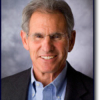Jon Kabat-Zinn

Jon Kabat-Zinn
Jon Kabat-Zinnis Professor of Medicine Emeritus and creator of the Stress Reduction Clinic and the Center for Mindfulness in Medicine, Health Care, and Society at the University of Massachusetts Medical School. Kabat-Zinn was a student of Buddhist teachers such as Thich Nhat Hanh and Zen Master Seung Sahn and a founding member of Cambridge Zen Center. His practice of yoga and studies with Buddhist teachers led him to integrate their teachings with those of science. He teaches mindfulness, which he...
NationalityAmerican
ProfessionEducator
Date of Birth5 June 1944
CountryUnited States of America
It’s interesting to look at your children as line-in Zen masters who can put their finger on places where you’re resistant, or thinking narrowly, in ways noone else can. You can either lose your mind and your authenticity in the process of reacting to all that stuff, or you can use it as the perfect opportunity to grow and nourish your children by attending to what is deepest and best in them and in yourself.
Another way to look at meditation is to view thinking itself as a waterfall, a cascading of thought. In cultivating mindfulness, we are going beyond or behind our thinking, much the way you might find a vantage point in a cave or depression in the rock behind a waterfall. We still see and hear the water, but we are out of the torrent.
Even though in principle we may "know better", we routinely succumb all the same to the incessant, often frantic and unexamined busyness of thinking we have to get somewhere else first before we can rest; thinking we need to get certain things done to feel we have accomplished something before we can be happy.
You could think of mindfulness as wise and affectionate attention.
Awareness Is Not The Same As ThoughtMore Like A Vessel Which Can Hold And Contain Our Thinking
Most people think that to meditate, I should feel a particular special something, and if I don't, then I must be doing something wrong.
Maybe the fear is that we are less than we think we are, when the actuality of it is that we are much much more.
Wherever you go, there you are. Whatever you wind up doing, that's what you've wound up doing. Whatever you are thinking right now, that's what's on your mind. Whatever has happened to you, it has already happened. The important question is, "how are you going to handle it?" .... Like it or not, this moment is all we really have to work with.
Healing is a coming to terms with things as they are, rather than struggling to force them to be as they once were, or as we would like them to be, to feel secure or to have what we sometimes think of as our own way.
Meditation had never been tried before in a medical center, so we had no idea whether mainstream Americans would accept a clinic whose foundation was intensive training in meditative discipline.
I don't want people following Jon Kabat-Zinn. I want them following themselves.
I loved science, and when I discovered Buddhist meditative practices and martial arts, I was able to bridge those ways of knowing the world into my own unique way. From that grew the Mindfulness-Based Stress Reduction (MBSR) program, which became my karmic assignment.
I'm challenging everybody on every side of every divide to be more who they are, to cultivate their capacity for awareness.
It is what makes us human, what distinguishes us from other animals. We can be aware of being aware.